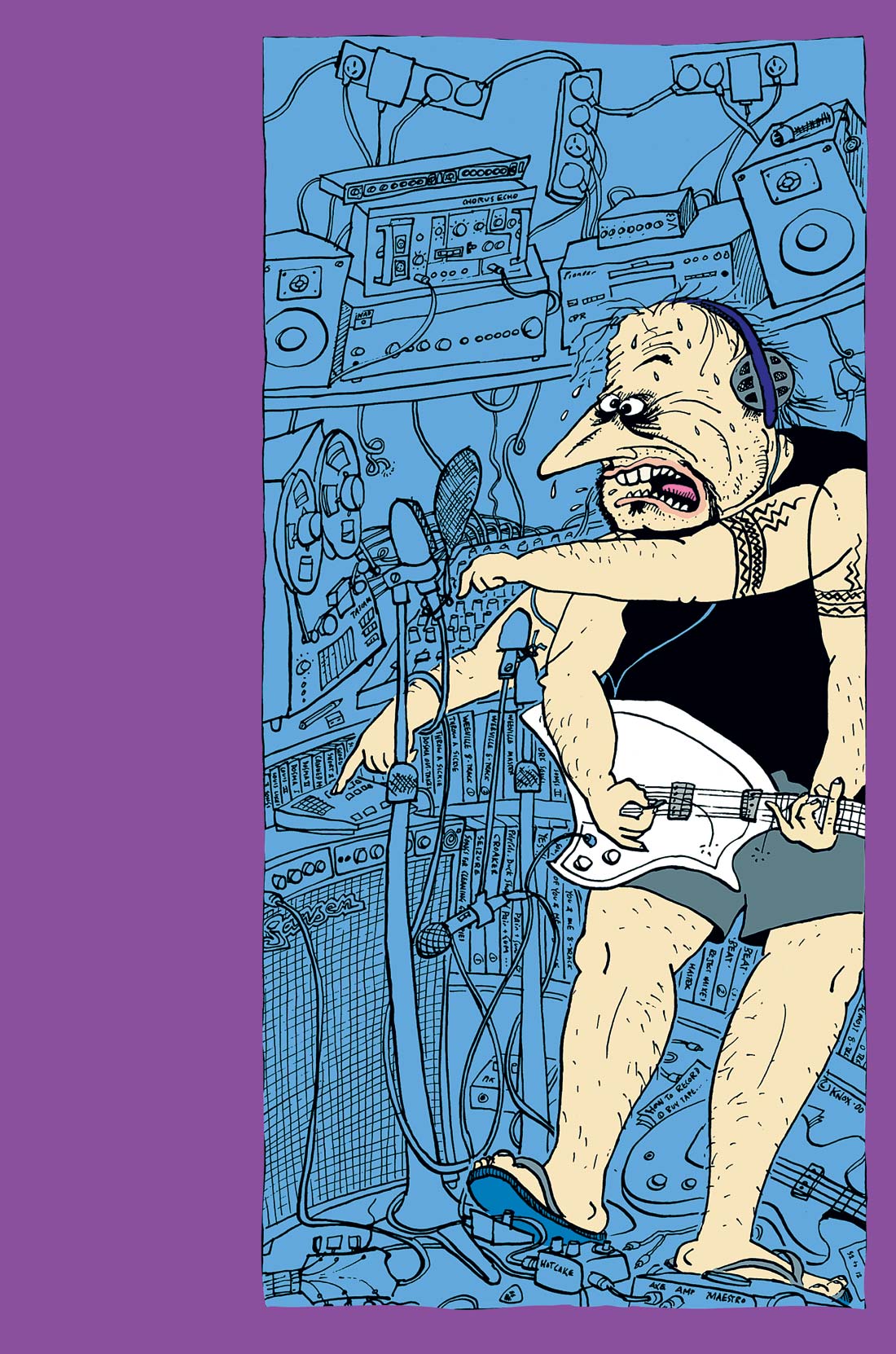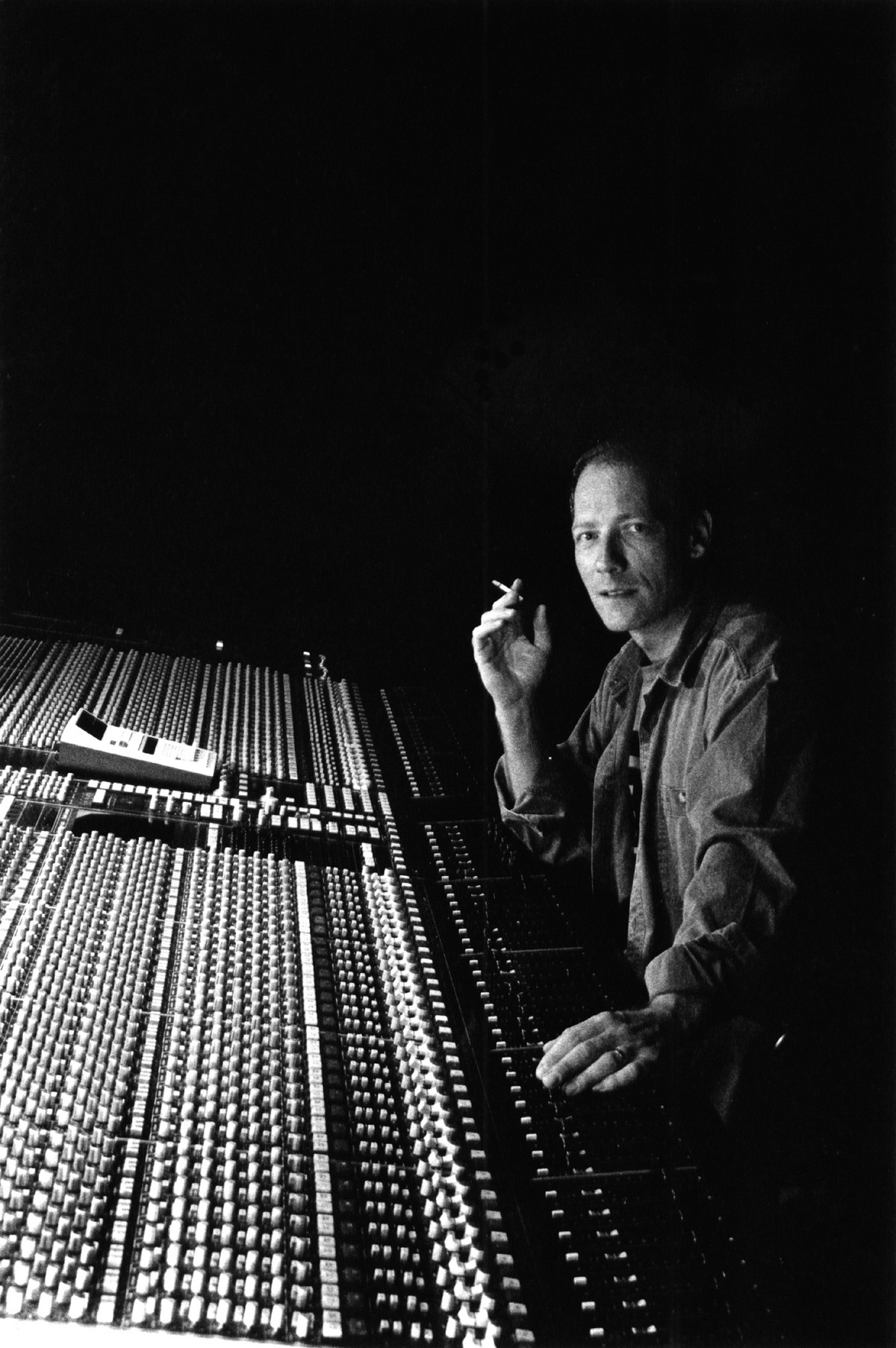We interviewed Phill Brown in Tape Op #12. Over the years he's worked with some of the greatest artists ever, like Jimi Hendrix, Joe Cocker, Traffic, Spooky Tooth, Jeff Beck, Led Zeppelin, Robert Palmer, Bob Marley, Steve Winwood, Harry Nilsson, Roxy Music, Stomu Yamash'ta, John Martyn, Little Feat, Atomic Rooster, and Talk Talk. This is another excerpt from his (as yet) unpublished book, Are We Still Rolling? Last issue: Phill worked with Dana Gillespie and had a frightening time with PCP. –LC
On the morning of July the 14th, 1974, 1 took a cab to Heathrow Airport where I had arranged to meet Steve Smith. As soon as I saw his bloodshot eyes and unshaven face, it was obvious that he had been up for most of the night. We were about to fly to New York to master Robert Palmer's Sneakin' Sally... with George Marino at Sterling Sound, after which we planned to move on to Baltimore to start Robert's new album Pressure Drop. We checked in our baggage at the airline desk and headed for the bar and a few brandies. Steve took a couple of downers to help him sleep and we boarded the plane. We settled in for the seven hour flight. I took out my portable cassette tape recorder to record some of the sounds of the aircraft - the take-off, intercom messages, and the general hum when flying at 30,000 feet. This was used later on the track "Off the Bone" from Palmer's album Some People Can do What They Like in 1976 and on "Christians who Kill" - one of the SPA recordings of 1993. Under the influence of a mixture of Mandrax and alcohol, Steve, who was smoking a cigarette, almost immediately fell asleep across the centre section of the 747. Some minutes later he woke up violently. A stewardess was beating out a fire on his jacket lapel - he had set himself alight.
We spent the 14th - 16th of July in a hot and humid New York City, mastering Sneakin' Sally Through the Alley and taking in the night life of the city. Steve made some telephone calls to confirm our arrangements with Little Feat, who were finishing their album Feats Don't Fail Me Now at the Blue Seas recording studio in Hunts Valley, Baltimore. They had agreed to stay on for a further five days and record album tracks with Robert. Before this session we flew to Atlanta, staying at the wonderful Hyatt Hotel - complete with full-grown trees in the foyer and glass 'pod' lifts on the outside of the building. Steve was on the phone at every opportunity, still finalizing plans. With another whirlwind tour of the city behind us we flew north to Washington for a day's sightseeing, before meeting Robert on the 21st in Baltimore to start work.
Robert and I had a quick conversation about sound and approach. "I don't want to tell the guys what to play", he said. "What the song requires should be shown by the way I sing it. The volume and tempo of my voice and the phrasing - that's what determines the music that goes with it. We're going for a certain atmosphere here and if we don't reach it in three takes, then we should leave it and move on to something else. Help me to keep things moving fast."
The Blue Seas studio was on an industrial estate, by the car park at the back of the ITI factory. Originally set up to test their parametric equalization equipment, it featured a 20-channel ITI parametric desk, limited outboard equipment and a 3M l6-track machine. All the band members of Little Feat were there: Lowell George - guitar, Ritchie Hayward - drums, Kenny Gradney - bass, Bill Payne - keyboards, Sam Clayton - percussion, and Paul Barre?re -guitar.
I set everyone up in a small, tight semicircle, only using screens between drums and keyboards. There was an immediate, positive feeling and we spent five days cutting basic tracks, with Robert in the studio doing live vocals and 'helping the vibe', and the band in this half circle in front of him. I used Neumann U67s and Electrovoice RE20s for most instruments, with a Sennheiser on Robert's vocal. I had to concentrate on getting to grips with a new desk and monitors, but nevertheless it was a sheer delight. The band loved Robert and the sound we had created, and I got on well with everyone, especially Ritchie Hayward and Bill Payne. Watching Ritchie play was fascinating, as he always looked as though he might collapse and stop drumming at any moment. Little Feat had just finished a new album...


